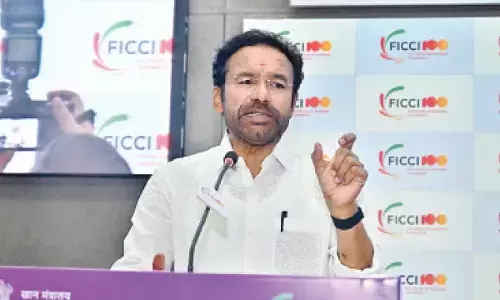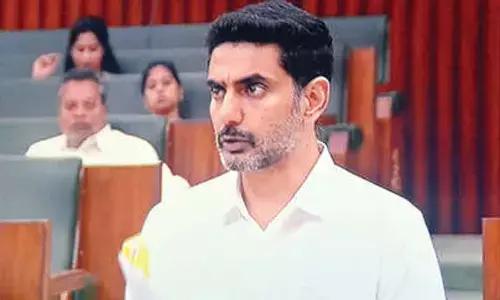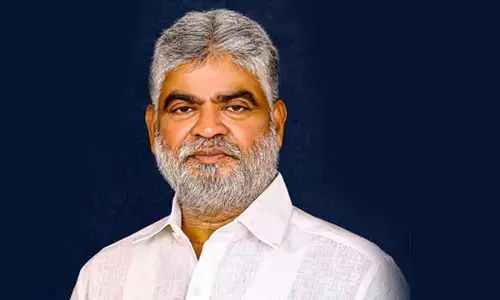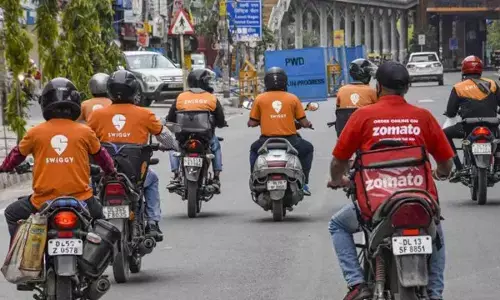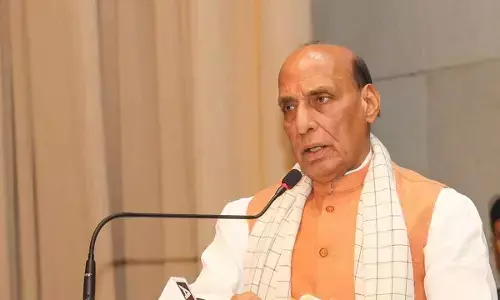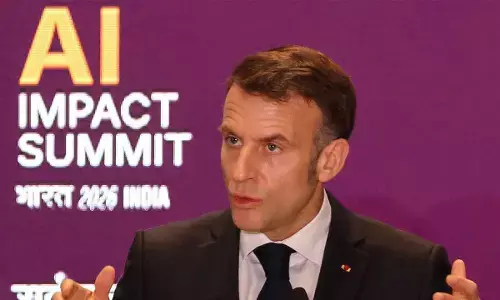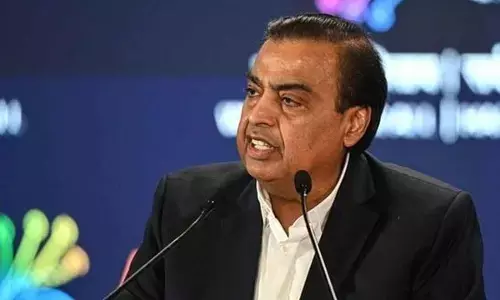Political pollution most dangerous
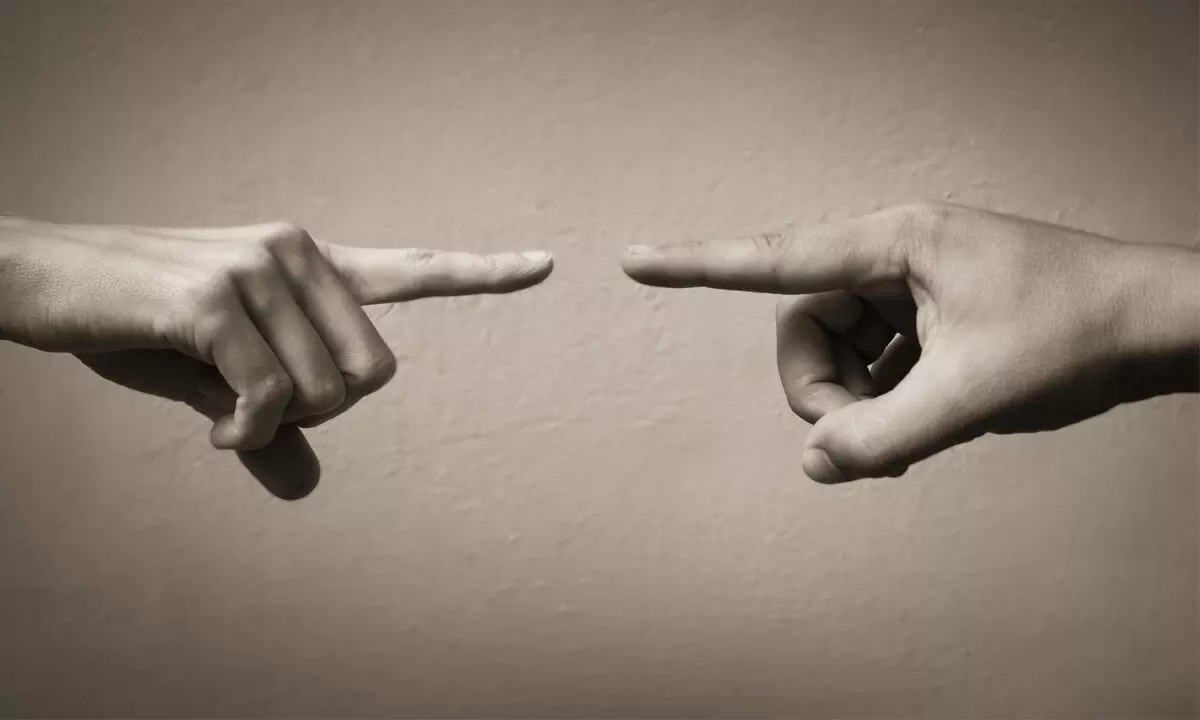
Political pollution most dangerous
We have seen how the British economy has taken a nosedive
We have seen how the British economy has taken a nosedive. We are now seeing how China is facing protests and repression. These are clear signs of internal strife which threatens to seriously affect the economic growth.
These developments, particularly the negative economic growth, can impact the global economy as well as that of China, which is the second largest economy and one of the biggest importers of a wide range of commodities.
Another major problem which continues to trouble China is the zero Covid policy. Prolonged lockdowns is resulting in frustration among people. No one likes to be confined to their homes for long. If situation is not brought under control, China being a major supplier of several products including metal and oil may affect the supply chains globally.
The way these two major economies are facing problems should have come as an eye-opener for our politicians representing national, regional and those parties which are aspiring to become national parties.
But it is unfortunate that they refuse to recognise the global economic situation and the developments and focus attention on converting the crisis in those countries to our advantage by attracting investment and industries to various parts of India. The two Telugu states which have a great potential to attract huge investments are also losing some great opportunities. For them what seems to matter most is to remain glued to power. Many changes are taking place in terms of governance and politics. The present trend in these two states is 'please the boss.' This mantra is being implemented by both the ministers and to some extent by bureaucrats. Everyone preaches that one should be honest and claims that everyone has the right to highlight the omissions and commissions of the ruling party. But the question is whether it is really so in practice.
In Hindi there is an adage, "Haati ke daant khanw ke alag aur Dikhane ke Alag" which means that elephants have two types of teeth; one is tuskers to show and the other to eat food. Similarly, the meaning of democracy has also changed. There is total mismatch between what the real definition of democracy is and how it has been twisted to suit the convenience of political executives.
If a ruling party organises any function or rally or meeting, it is considered their democratic right. But if the opposition wants to hold a meeting or visit a project or take out padayatra suddenly, the police come up with all kinds of rules and regulations and explanations and refuse permission on the grounds that it could pose threat to law and order. Why should the ruling parties be so scared of opposition when they have been mostly decimated during the last eight years?
Didn't the present ruling parties, when in opposition, organise dharnas, rallies and protests which sometimes turned violent? Did the peace get disturbed? It only means that the ruling parties are afraid of something or are autocratic in behaviour. Is democracy for only one section of politicians? One needs to ponder over it.
As elections approach and all the political parties get busy with their strategies, the regional parties blame the Centre for misusing the central agencies. This allegation is not new. Whichever party is at the Centre is accused of misusing probe agencies.
When Congress was in power right from the time of Indira Gandhi, opposition had always been alleging that central agencies were misused to harass them. They allege that it is a matter of shame that these agencies turned into puppets in the hands of Centre to demoralise the opposition-ruled states. The BJP, too, had always been very vocal making such allegations. But now, it is facing similar allegations from the opposition.
Well, it is understandable in political game to outwit one another. But then the regional parties which are in power in states should answer why they do not hesitate to use their agencies like police, ACB and CID against the opposition. These agencies work with hyper speed in initiating action against the opposition party activists but when a similar crime is committed by the ruling party members, no action is taken. Still, leaders claim that law will take its own course. What a dichotomy?
We have seen any number of cases where opposition party activists and leaders have been arrested and put behind bars at least for a few days and this resulted in overburdening of cases in the courts. We have recently seen some judges commenting that the number of political cases had risen affecting the hearing of other cases.
What is really disturbing is the way the ED and other such agencies have been unearthing certain alleged scams involving important leaders, ministers and their family members who belong to the ruling parties in the states. For a common man, it is painful to digest that they are the lawmakers who are supposed to shape the destiny of the youth and the country.
Another disturbing new trend is politicians giving up decency and value system in politics, political speeches and on the floor of the legislatures. Leaders at levels, from party presidents to the lowest level, have forgotten what a decent language is. Political parties no doubt have a major role to play in democracy and certainly are a necessary evil, but it does not mean that they can be arrogant. They should realise that no one is eternal. They had better realise that making all kinds of remarks against opposition leaders and their family members and distribution of freebies including schemes where direct cash benefit is provided cannot make them remain in power for ever. People are not a saleable commodity.
They should recognise the fact that an undercurrent of anti-incumbency factor is there among various sections in many states ruled by regional parties including the two Telugu states. Schemes alone cannot assure positive votes for ever. People want something more. They want overall development; they want industries which can generate employment. Farmers want good price for their produce. Students want quality education. General public want houses, good roads and infrastructure facilities. They want the projects to become real and not remain on paper. If the promises made by political parties were implemented with all seriousness, there is no reason why 75 per cent of the population is still considered poor or backward.
Indecent language will not help in creating great impression among the voters. They need to understand that the common people have strong likes and dislikes and they cannot afford to stoop to such levels as to enjoy the kind of language that is being used by the politicians. Only a small group of supporters of such leaders may revel in their indecent outbursts – not all will appreciate it.
What is equally disturbing is the falling standards of moral values. On one hand, we have seen how some elements had defaced the walls of JNU in Delhi with graffiti, asking 'Brahmins and Baniyas' to vacate the campus which displays exclusivist, tendencies. On the other, cases of teachers misbehaving with girl students are also on the increase. A teacher in India is considered to be equivalent to God. That is why our great scriptures say, "Guru Sakshat Parabrahma, Tasmai Sri Guruvaih Namah.'
All these examples clearly indicate that pollution is spreading everywhere much faster than Corona virus and has spread from politics to all other sectors. If the present top leaders and those who aspire to become top national leaders do not focus on cleansing the political system and ushering in a fresh wave of a healthy political and general atmosphere, the country would suffer unrepairable damage both in terms of economy and moral values and would move closer to anarchy sooner than later. Unfortunately, every scheme is vote-based not note-based. There is no proper planning.


